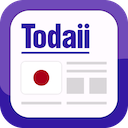Is Mastering Basic Japanese greetings really this easy?
Learn Japanese - Master Basic Greetings in Japanese Fast!
1477 viewIs Mastering Basic Japanese greetings really this easy?
Yep, you will learn a few tips to master basic Japanese greetings fast with this introduction lesson.
In this lesson, you are going to learn how to say hi, how are you in Japanese and how to answer.
It’s super easy and it only takes 3 minutes. Let’s learn a short dialogue.
So here is the typical conversation you hear every day in Japan.
こんにちは。 - "Hi" げんきですか。 - "How are you?" げんきです。 - "I am fine."
こんにちは。 - "Hi" or "hello". こ、ん、に、ち、は。
こんにちは. こんにちは is a general greeting meaning "hi" or "hello".
It also means "good afternoon" as one of the greetings for the day
But you can say こんにちは。All day long as a greeting when you meet people.
Next we have げんきですか。 - "How are you?". Let’s take a closer look.
げんきですか。 - "How are you?". げ、ん、き、で、す、か。
げんきですか。 げんき means "healthy", です is basically same meaning as "to be" in English, か is a sentence ending particle that can be used to make a question.
げんきですか。 literally means "are you healthy?" but it is used to mean "how are you?."
Now the easy part, answering the question. To answer the question げんきですか。 - "how are you?"
you just say げんきです。 - "I am fine."
You just have to drop the か(ka) at the end. げんきです。 - "I am fine."
げ、ん、き、で、す。 げんきです。
Let’s take a look at these two lines. Person A: げんきですか。 - "how are you?" Person B: げんきです。- "I am fine."
The only difference is, you drop the か when answering the question.
See this conversation. We are going to shorten it down. Ta-dah!
Here we have the same conversation げんき? - "How are you?" げんき。 - "I am fine."
The only difference is the intonation げんき? げんき。 - "I am fine."
Now be careful. This is a very informal conversation.
Don’t use it with your teachers or in business situations.
Now before you go, let’s look at two other responses to "how are you".
First we have.. まあまあ。 - "so so". さいあく。 - "Bad" or "I am not doing good at all".
So now let’s practice. So, I will ask you how you are and you respond.
こんにちは、げんきですか。
げんきです。 Good job! Now, you ask me how are you.
げんきです。 まあまあです。 さいあくです。 げんきですかー!
げんきがあれば、なんでもできる。 げんきですかー!
No word list

“3D巨大猫”コラボカフェが話題 猫型クッキーで動物を応援(2022年7月15日)

千葉・流山市 アパート全焼 女性1人けが(2020年9月21日)

冷やし中華風パスタが大人気 秋葉原 ランチ パスタ

ようこそ!ゆきだるまのパーティへ! (途中まで)

ウィンブルドン選手権 ロシアとベラルーシ選手参加(2023年7月3日)

Plant your own tree in your mind | Masako Wakamiya | TEDxTokyoSalon

今好きになる

サメの中から発見された奇妙な物体8選

Easy Japanese 12 - Love
Easy Japanese 12 - Love
まだ、君が好き


You need to upgrade to a premium account to using this feature
Are you sure you want to test again?

Please upgrade your account to read unlimited newspapers


Todaii Japanese is a website for learning and reading Japanese news integrating various features such as dictionary, practice, testing, ...
https://todaiinews.com
todai.easylife@gmail.com
(+84) 865 924 966
315 Truong Chinh, Khuong Mai, Thanh Xuan, Hanoi


